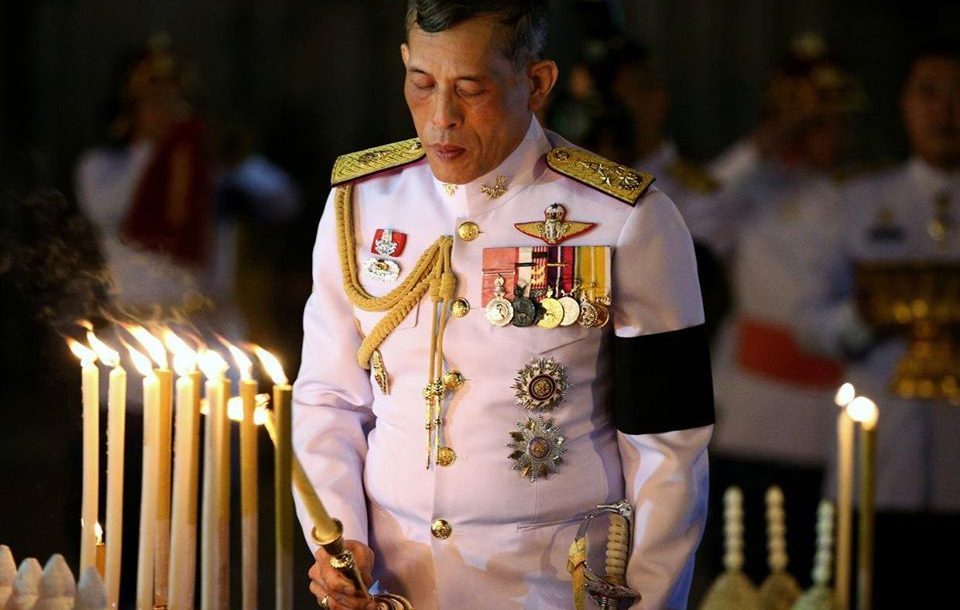When Thailand announced on Monday night that it had carried out its first execution in nine years, the news was met with shock. The country had refrained from imposing the death penalty since the lethal injection of two drug dealers in 2009. It had also repeatedly pledged to look into ditching capital punishment altogether.
That changed on the night of 19 June 2018, when the Corrections Department said it had sent a 26-year-old man convicted of aggravated murder to the lethal injection chamber.
What’s puzzling is the authorities’ refusal to discuss or explain the question of why him—and why now? As any journalist working in Thailand would tell you: once Thai bureaucrats keep mum about certain questions, it’s time to raise the alarm.
Behind this surprising turn of events—which has virtually gone unreported by the media—is King Vajiralongkorn’s apparent refusal to grant the condemned man a royal pardon and stay his execution. This is a significant departure from his late father’s longstanding practice of allowing death-row prisoners to live.
Under Thai law, even after the Supreme Court has handed down a death sentence, it can be overturned by His Majesty the King if a petition is filed to the palace within 60 days. The king can then deliberate on the petition as long as he wishes.
It was under this mechanism that King Bhumibol, who died in October 2016, effectively stopped Thailand from carrying out the death penalty for nearly a decade. Petitions submitted by condemned prisoners were left unanswered by the palace, leading prison officials to treat them as a matter “under royal deliberation”. They refrained from putting the petitioners to death, lest they were seen as intruding on royal authority. More than 500 death-row inmates continue to live indefinitely because of this inaction.
It’s unclear why King Bhumibol left the petitions unanswered during the last decade of his life. Maybe he personally didn’t believe in the death penalty. Maybe he didn’t want to interfere with the justice system. Or maybe he was simply too unwell to give them a thought—his ailing health took a steady downturn after 2009.
His successor seems to be taking a different route. There are strong indications that Teerasak Longji submitted a petition, but unlike those condemned before him, his plea for clemency was rejected by His Majesty the King.
Teerasak’s family has confirmed this, albeit indirectly. In a tearful interview with reporters, Teerasak’s sister told them she was only informed of the execution after he was put to death. According to her, Teerasak wrote to his family as late as 31 May and expressed his hope that he would be allowed to live and reform himself.
“He still didn’t know he would be executed, and he still said he wanted to turn his life around and return to society as a good person,” Chutamas Longji said of her late brother on 19 June.
The Supreme Court had already sentenced Teerasak to death. Why did he hope the penalty would change? It could only be because he had filed for royal clemency.
The fact that Teerasak’s family didn’t know the execution date is itself telling. If Teerasak had declined to submit a petition, he would have known—and his family would have known—that the execution would come once the 60 days after the Supreme Court’s verdict had passed.
In contrast, when royal petitions are rejected, the prisoner must be put to death within 24 hours. Informing relatives would not be a priority for prison officials.
Flawed justice on death row
Amnesty International's Papang Hidayat outlines Indonesia's troubling legal flaws.
Even without the clue provided by Teerasak’s sister, prison officials would have been extremely reluctant to dare carry out Thailand’s first execution in 9 years without first consulting the legal system’s final authority: the king himself.
King Vajiralongkorn’s seeming refusal to pardon Teerasak, or even tacitly allow him to live, could have far-reaching implications. What will happen to the 517 death-row inmates whose fates currently hinge on the King’s mercy?
The author, a Thai journalist, has requested anonymity.
 Facebook
Facebook  Twitter
Twitter  Soundcloud
Soundcloud  Youtube
Youtube  Rss
Rss 



